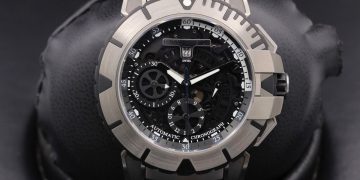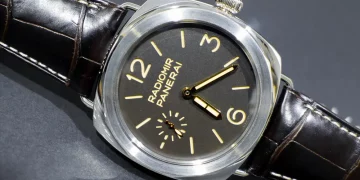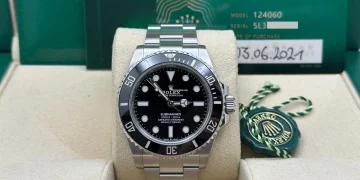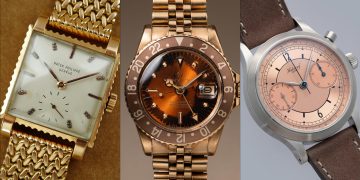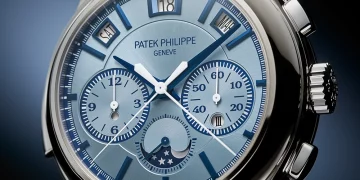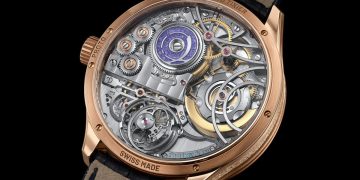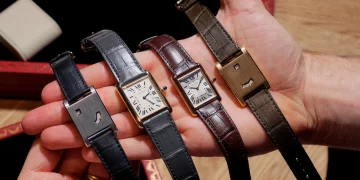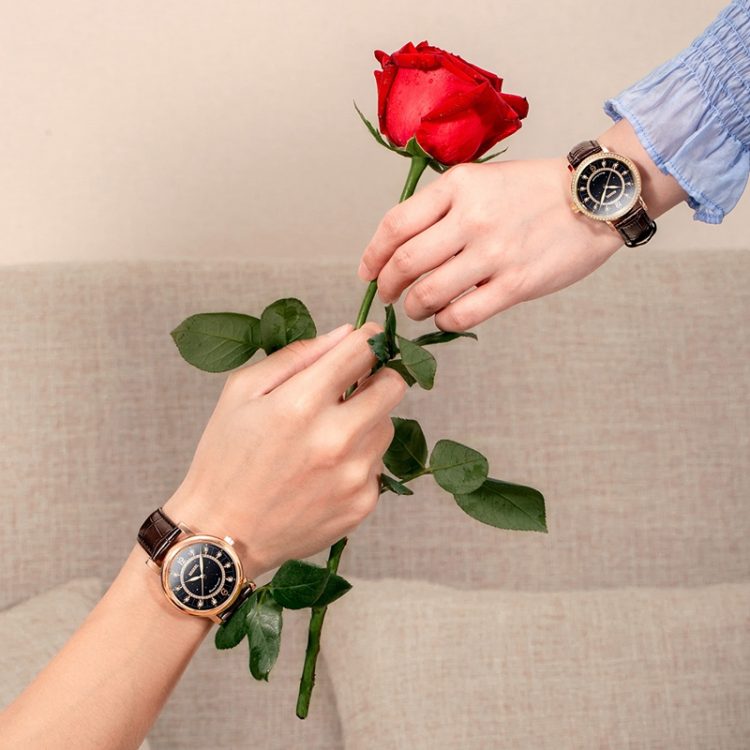Introduction:
Watches, as one of the most universally recognized accessories, transcend simple functionality. They are often seen as a symbol of status, a timeless accessory, or even an emotional keepsake. However, their meaning and value can differ significantly depending on the cultural context. Across the globe, the perception of watches is shaped by diverse historical, social, and economic factors. The cultural significance of a timepiece can vary widely between Western and Eastern societies, and even between different countries within the same continent.
In this article, we will explore how the meaning and value of watches differ across various cultural backgrounds. From their role as status symbols in some societies to their function as personal heirlooms or technological marvels in others, watches hold a special place in people’s lives, often telling more than just the time.
1. Watches in Western Cultures: Symbol of Status and Tradition
1.1 Luxury and Prestige
In Western cultures, particularly in countries like the United States, Switzerland, and France, watches are often seen as symbols of luxury, prestige, and success. Brands like Rolex, Patek Philippe, and Audemars Piguet have become synonymous with status. These watches are more than just functional tools for telling time—they are considered luxury items that signify wealth and refinement.
In these societies, owning a high-end watch often reflects one’s social standing, personal taste, and financial success. It’s common for people to wear watches that express their affluence, and many view their timepieces as investments that will hold or increase in value over time. The importance of a luxury watch in Western culture is not only about the material or technology behind the watch but also about the heritage and exclusivity of the brand. For instance, a Patek Philippe Calatrava is not just a timepiece; it’s a symbol of generational wealth and prestige, passed down through families as an heirloom.
1.2 Watches as Gifts and Heirlooms
In many Western cultures, watches are often given as milestone gifts, marking significant life events such as graduations, promotions, weddings, or retirement. The giving of a luxury watch as a gift carries immense significance, signifying respect, achievement, or personal milestones. Watches in these contexts are often seen as timeless gifts, meant to be treasured and handed down through generations, creating a sense of legacy.
For example, the Rolex Submariner is not only an iconic timepiece but also a symbol of achievement and status. Receiving one as a gift is often considered a marker of reaching a particular milestone in one’s career or personal life.
2. Watches in Eastern Cultures: Significance in Craftsmanship and Time
2.1 The Role of Watches in Japan
In Japanese culture, watches often symbolize precision, craftsmanship, and simplicity. Japan has a long-standing tradition of attention to detail and perfection, and this is reflected in the designs of Japanese watchmakers such as Seiko, Grand Seiko, and Citizen. While the watches from these brands may not always carry the same luxury price tags as their Swiss counterparts, they are highly valued for their exceptional craftsmanship and functional elegance.
Japanese watches often emphasize minimalist designs and practicality, aligning with the cultural values of simplicity and refinement. For example, the Grand Seiko Snowflake is renowned for its elegant, understated design and innovative Spring Drive movement. The emphasis is on quality and functionality, rather than flashiness or ostentation. In Japan, a watch is often viewed not just as a tool for telling time, but as a reflection of personal integrity and honesty—values that are deeply embedded in Japanese society.
2.2 Watches as Emblems of Efficiency and Modernity
In China and many other parts of East Asia, watches are often seen as symbols of modernity and efficiency. The rapid economic growth in these regions has led to a rising demand for watches as indicators of success and progress. As a result, the cultural emphasis on watches in China often leans toward technological innovation and prestige rather than simply luxury.
For example, Chinese consumers are increasingly interested in both Swiss luxury watches and smartwatches. The rise of the smartwatch market, especially with brands like Apple and Huawei, demonstrates the region’s growing interest in combining advanced technology with traditional timekeeping. This focus on innovation reflects a cultural drive for efficiency, as time is seen as a valuable resource to be maximized.
2.3 Watches as Cultural Artifacts and Collectibles
In some Asian cultures, particularly in Hong Kong and Singapore, watches are highly regarded as collectible items and cultural artifacts. Collecting rare and limited-edition timepieces is a popular hobby, and certain brands, such as Audemars Piguet and Vacheron Constantin, are seen as symbols of luxury and taste. These timepieces often carry deep cultural significance, reflecting the owner’s taste, sophistication, and ability to appreciate craftsmanship.
A significant factor in these regions is the cultural value placed on heritage and legacy. Just as Swiss watches are passed down through generations in Western cultures, so too are high-end watches in East Asia—often held in esteem as family heirlooms that represent family success and status.

3. Watches in Middle Eastern and African Cultures: Luxury, Innovation, and Status
3.1 Watches as Expressions of Luxury and Power
In the Middle East, watches are often associated with opulence, luxury, and prestige. The region’s affinity for high-end luxury goods translates to a keen interest in premium timepieces, where a watch is often seen as an expression of wealth and status. Brands like Rolex, Audemars Piguet, and Hublot are popular choices, reflecting the cultural appreciation for extravagant luxury and the affluent lifestyle many in the region aspire to.
A timepiece in the Middle East goes beyond being a functional tool and becomes a statement piece—a symbol of achievement and power. Many wealthy individuals in the Middle East choose limited-edition or custom-made watches that express their distinct taste and individuality. The luxury watch market is also increasingly catering to the demand for innovation and exclusivity, with intricate designs and complex mechanical movements often being highly valued.
3.2 Watches as Gifts in African Cultures
In many African cultures, watches also carry significant cultural weight as gifts. However, they are typically seen as more symbolic rather than simply luxurious items. In some countries, watches represent respect and are often given during important life events, such as weddings or initiation ceremonies. Watches are seen as lasting symbols of personal milestones, marking important transitions in an individual’s life journey.
In West Africa, for instance, watches are often associated with timelessness and dignity. The giving of a high-quality watch signifies that an individual has reached a stage in life where they are worthy of respect and are expected to carry themselves with honor. Watches are often passed down as heritage items, carrying the history and legacy of previous generations.
4. The Universal Appeal of Watches: A Global Symbol
Despite the differing cultural interpretations of watchmaking across the world, it is evident that watches possess a universal appeal. While the meaning of a watch might shift based on geographical, social, and economic factors, the value placed on craftsmanship, precision, and the passage of time remains a shared element across cultures.
In every culture, watches play a role beyond simple timekeeping. Whether in the form of a luxury status symbol, a family heirloom, or a technological marvel, a watch reflects the values and traditions of its owner. The multicultural appeal of watches underscores their global significance and enduring importance in personal and social contexts.
Conclusion:
The meaning and value of watches differ dramatically depending on the cultural context. In Western societies, watches are often symbols of luxury and prestige, while in Eastern cultures, they may reflect craftsmanship, simplicity, and innovation. In the Middle East and parts of Africa, watches represent wealth, status, and respect. Regardless of the region, however, watches continue to hold deep cultural significance—connecting individuals to their heritage, traditions, and the passage of time. The diversity in how watches are valued across cultures speaks to the universal appeal and timeless nature of these remarkable timepieces.



